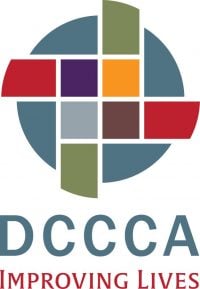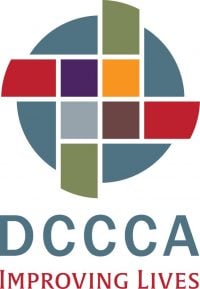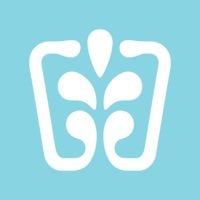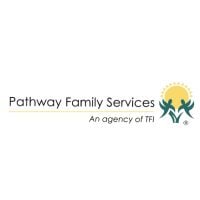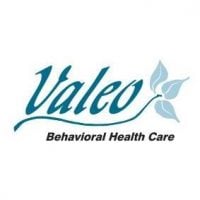Road to Recovery
Drug Rehab Center in Lawrence, Kansas
Road to Recovery is a nationally accredited and multi-disciplinary treatment facility in Lawrence, Kansas that offers a wide range of services for individuals struggling with substance abuse, including trauma-informed care, peer support services, individualized and intensive outpatient treatment, opioid treatments, and relapse prevention.
Multiple patients have reported Road to Recovery as permanently closed.
Research other rehabs in Lawrence, Kansas, or get help finding an open facility.
About Road to Recovery in Kansas
Road to Recovery in Lawrence, Kansas is a multi-disciplinary, evidence-based and nationally accredited treatment facility for alcohol and drug addiction. It offers a wide range of services to individuals who are struggling with substance abuse, including integrated trauma-informed care, peer support services, individualized and intensive outpatient treatment, opioid treatments, and relapse prevention. Additionally, they provide co-occurring and dual-diagnosis services, family and marriage counseling, and medication-assisted treatment (MAT).
Road to Recovery offers comprehensive treatment plans that are tailored to the specific needs of each patient. They are committed to providing quality care and resources to support individuals on their journey to recovery. Their services include individual, family and group counseling, education and prevention, and case management services. Their substance abuse treatment also includes medical exams, specialized mental health services, and referrals for other resources.
Road to Recovery is a CARF-accredited treatment facility, meaning that it has been reviewed and approved by an independent, international accrediting body. Additionally, all staff members have been trained and certified in various areas, including motivational interviewing, trauma-informed care, mindfulness, and other evidence-based practices. They are also part of the SAMHSA-certified opioid treatment program, which provides medication assisted treatment, counseling, and recovery support.
Genders
Ages
Modality
Additional
Conditions and Issues Treated
Substance abuse is the excessive use of any drug. This includes alcohol, medications, and illegal drugs. Substance abuse is treated with a combination of physical and mental treatments. Patients detox and follow up with therapies that target the underlying cause of the addiction. Substance abuse is a severe problem that can be successfully treated with a variety of therapies. Road to Recovery treatment uses a combination of therapies along with other resources to overcome substance abuse.
Opioid addiction treatment should be done in a medically supervised drug rehab. While taking opioids, users will typically use other substances to enhance the effects of opioids or to reduce the adverse effects of opioid use. Opioid addiction treatment will include detoxification and drug rehab counseling to help both the user and their loved ones learn how to live a successful sober lifestyle.
Treatments such as methadone, buprenorphine, and naltrexone are three medications that can help treat opioid addiction. These drugs work on the brain’s pleasure center and reduce cravings and the effects of illicit opioids such as heroin. These drugs can be either given orally or by injection. Individual drug rehab counseling sessions can be helpful to discuss any questions or concerns with the drug treatment program. This counseling will also help the user set goals for when they finish drug rehab.
Opioid addiction recovery is a long process. Many of the changes to the brain caused by opioid use cannot be undone, but with time and the proper treatment, a person can return to normal function. After detox, treatment will include drug rehab counseling and entering a halfway house or sober living community. Aftercare is critical to long-term recovery, as it helps the user avoid relapsing and entering back into drug rehab.
Levels of Care Offered
This center offers a variety of custom treatment tailored to individual recovery. Currently available are Detox, Drug Rehab, Dual-Diagnosis, Intensive Outpatient, Outpatient, with additional therapies available as listed below.
An addict may have to go through alcohol or drug withdrawal. While detox may be uncomfortable, it is not life-threatening. Detoxification allows the addict to rid the body of all traces of drugs or alcohol and gives the addict a clean slate for their recovery. In an inpatient or outpatient setting, detox can be managed medically.
Intensive outpatient treatment is a type of comprehensive addiction care. Unlike conventional residential treatment programs, the patients live at home during the recovery process. This means that one can continue working and caring for their families. These also allow people to keep pursuing their studies while also working on their sobriety.
Outpatient treatment can help one transition to normal life from the round-the-clock supervision and treatment available during inpatient treatment. It is an excellent tool to ensure long-term recovery. However, it is essential to note that intensive outpatient treatment in itself does not remove patients from the real-world setting. This means there’s always a higher risk of coming across environmental triggers. To further prevent relapse, an outpatient treatment center should be able to provide ongoing support services.
Once the patient is enrolled in an intensive outpatient treatment program, they will be expected to attend therapy and group meetings daily for a stipulated period. The frequency and duration of each session will depend on the patient’s needs and level of addiction. This can help curb the habit and deal with underlying issues that led to it. Most of these professional treatments are designed to allow patients to structure their daily schedules in a way that is conducive to recovery.
“Outpatient treatment is ideal for those who have a lower intensity addiction. It’s also suitable for those with a supportive environment and those on a tight budget.
Outpatient treatment can be considered the lowest intensity level of addiction treatment. It is ideal for early phase addiction or lower intensity addictions. It may involve weekly sessions instead of daily. Peer group support, 12-step programs, and individual counseling may still be used and anti-addiction medication.
Therapies & Programs
The therapies usually include siblings, children, and parents who are involved in their daily lives. These sessions are vital because they address past issues that may have hampered an addict’s or alcoholic’s recovery and provide support at a crucial time!
One of the most critical aspects of family therapy is helping addicts’ loved ones see their situation in a new light. It’s also one of the most challenging things a family can do when a loved one struggles with addiction or alcoholism.
Group therapy is held in a safe, controlled setting where patients can feel comfortable sharing their struggles and gaining perspective through shared conversations. It takes place in a group rather than one on one to prevent feelings of isolation or being unique in their situation while creating an environment for addicts at Road to Recovery to develop fellowship, accountability, and support. Group therapy is an important tool in recovery that prevents cravings that prompt a return to active addiction.
This type of therapy involves the use of a variety of therapeutic techniques to help addicts recover from past traumas that might have triggered their substance abuse. During these sessions, therapists will work with the addict to address painful memories and learn how to cope effectively with stressors as they arise.
During these types of sessions, therapists will typically focus on three main goals:
- Identifying and expressing painful emotions associated with past traumas.
- Reducing the effects of stress on an addict’s life by developing more effective coping mechanisms.
- Developing healthy ways of thinking about stressful situations that can help addicts avoid substance abuse issues in the future.
This type of therapy is typically used in conjunction with other types of addiction treatment services. By identifying and dealing with the root cause of addiction, most addicts can overcome their cravings and prevent relapse once they leave rehab.
Many different types of addiction treatment services exist to help addicts safely get sober, but it’s important for recovering individuals to find a therapist or support group that will help them address the root cause of their addiction.
Payment Options Accepted
For specific insurance or payment methods please contact us.
Is your insurance accepted?
Ask an expert, call (888) 674-0062
Additional Details
Specifics, location, and helpful extra information.
Lawrence, Kansas 66046 Phone Number(785) 856-2877 Meta DetailsUpdated November 25, 2023
Staff Verified
Road to Recovery Patient Reviews
There are no reviews yet. Be the first one to write one.
Lawrence, Kansas Addiction Information
About 42% of adults in Kansas have tried an illicit drug at some point in their lives. 12.4% of the state population uses illegal drugs and 4.5% abuse alcohol in a given year. 15.16% of all deaths in Kansas between 2008 and 2017 were caused by either drugs or alcohol.
The drug addiction problem in Lawrence, Kansas, is relatively bad. The Lawrence metropolitan area had a rate of 22.4 opioid-related overdose deaths per 100,000 people in 2016. This was the ninth-highest rate in the nation. In 2017, there were 127 reported HIV/AIDS-related injection drug use cases in Lawrence. Some of the most common treatments include inpatient, outpatient, and 12-step programs.
Treatment in Nearby Cities
- Holton, KS (45.1 mi.)
- Shawnee, KS (27.7 mi.)
- Louisburg, KS (37.0 mi.)
- Seneca, KS (76.0 mi.)
- Winfield, KS (152.6 mi.)
Centers near Road to Recovery
The facility name, logo and brand are the property and registered trademarks of Road to Recovery, and are being used for identification and informational purposes only. Use of these names, logos and brands shall not imply endorsement. RehabNow.org is not affiliated with or sponsored by Road to Recovery.


